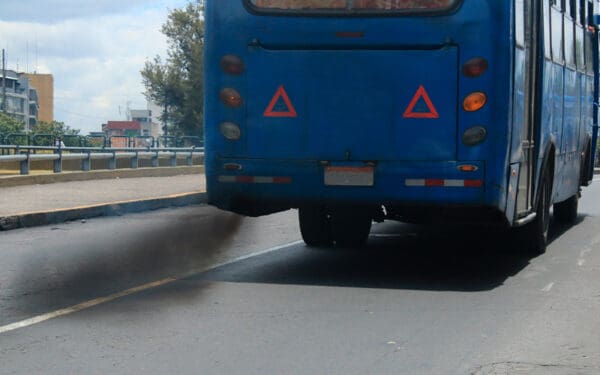
This photo was from 2021, two (at this point, almost three) years ago when my kids last got to enjoy a fun snow day outside. I miss these days – and I want to make sure this wasn't the last time my kids got to create snow-filled, childhood memories.
Recently, when I reached into the closet for my daughter’s gloves and hat for her daily trek to the bus stop, I noticed her snow pants, which had been pushed aside since last year. They were collecting dust, unused and unneeded, given the mild fall.
As I watched her run to the bus, I felt a pang of sadness. Her childhood memories, and that of my son’s, will be very different than mine because of climate change. In New England, milder fall and winter seasons, sudden cold snaps, heat emergencies, and heavier rains and floods are robbing them of memories I want them to build and putting their future in danger.
That’s why COP28, the annual international climate conference beginning November 30 in Dubai, makes me both angry and hopeful. Angry because I can’t fathom how world leaders are still talking – arguing, really – about how to halt climate change rather than hitting the ground running. Hopeful because I know we can still come together and fight for a better future for our children.
Global United Nations Climate Conference: An Overview
COP stands for Conference of Parties. The “parties” are leaders, politicians, and advocates from nearly 200 countries working toward a worldwide climate change response. These United Nations-sponsored conferences started with the Earth Summit in 1992. There, for the first time, international leaders agreed that emissions from just a few nations (mainly Western and white) were primarily responsible for climate change. Each conference since then has aimed to slow the progression of the crisis.
This year’s conference meets for a week to allow countries to present their plans for combating climate change. The four focus areas are transitioning to clean energy, centering nature and people at the heart of climate action, financing climate action, and ensuring that decisions and discussions are truly inclusive and collaborative.
Candidly? I’m Salty About COP28
The “28” in COP28 stands for the 28th conference. That’s nearly three decades of global leaders convening. When these leaders managed to pass the Paris Agreement – a binding agreement to stop warming from reaching 2 degrees Celsius – I was so excited. Finally, maybe we’d see some bold movement on climate change. But in the years since then, all we got was more talk and empty promises. Proof of delay is in the science, with the 1.5-degree Celsius warming target getting further out of reach each year we wait. That target was an aspirational addition to the Paris agreement – one world leaders hoped we could achieve – and that hope is becoming smaller. Meanwhile, my daughter gets older each year while winters grow milder and storms increase in severity.
It’s frustrating to sit here in Massachusetts and so desperately want leaders across the world to do something, to walk the talk that they’ve been talking for 28 years. I’m especially frustrated by the continued failure of COP delegates to address the inequities that overwhelmingly endanger countries least responsible for the climate fallout. Ironically, while two of the focus areas for this year’s conference are about inclusivity, collaboration, and putting people first, the COP has been notorious for excluding non-Western countries most affected by climate change.
New England Has Done Great Things to Slow Climate Change, But We Can’t Stop Now
COP isn’t making the change it needs to, but thankfully I can find some hope in the work that New England is leading toward preparing for climate change. Vermont recently passed an Affordable Heat Act law, ensuring that the state slashes polluting emissions from buildings and cleans up the state’s fuel supply. Vermont and Massachusetts have finalized clean cars and trucks rules within the last year, and Rhode Island is on track to do the same by the end of the year. Almost all New England states have climate laws on the books and are working on plans to ensure we meet future targets.
As a region, New England has done significant work on climate policy, with local communities and voices leading the charge. I’m so proud to live in a region where we can move on climate locally despite the seeming inability to do so globally. But I worry that New England’s momentum is slowing – which makes it even more important that CLF, our partners, and our constituents show up and speak up for climate action.
In Massachusetts, the state needs to complete its overdue investigation of how gas utilities comply with the state’s 2050 net-zero climate mandates – and we need to push for state regulators to set phase-out dates for gas furnaces and hot water heaters. The rest of our four New England states must create and pass a formal state definition of environmental justice to ensure the fair treatment and inclusion of all people in environmental and energy-based policymaking. Throughout our New England region, policymakers need to require utility companies to invest in safeguarding infrastructure proactively rather than allowing them to hastily fix damaged infrastructure after extreme weather or Nor’easters. And both Maine and Connecticut should pass standards that cut air and climate pollution from fuel-powered transportation – but are instead arguing about only adopting the rules partially or not at all.
I’m Going to Fight for My Child’s Future – And You Can Fight Too
While I can’t attend COP28 to voice my frustrations, I know that I have a voice here in New England to speak up about how the impacts of climate change affect my family’s daily life. I know climate change means less time spent outdoors due to weather extremes, higher heating bills due to energy price spikes, and longer allergy seasons due to more air pollution, affecting my kids’ health. So what can I do with my voice?
You, me, and every other guardian, family member, and New Englander can push our elected officials and decision-makers to act. We can write, email, call, attend public meetings, and demand accountability for the sake of our future and our children. COP28 is evidence that climate change affects the entire world. Tackling a crisis of this scale requires all of us to come together and push for change. Our voices are the tools to do so. New England can continue to model what bold climate action looks like across the nation and the world – but only if we don’t give up and lose momentum on everything we’ve accomplished so far. Here at CLF, we’re working daily to remind our state leaders of what’s at stake and ensure climate is a priority.
COP28 serves as yet another reminder that climate change isn’t going away. But my kids provide a daily reminder of why I need to speak up to state leaders about why we need climate action now. And I know that if we all work together to protect this future, we can still make a difference, even after 28 years of global conferences.



